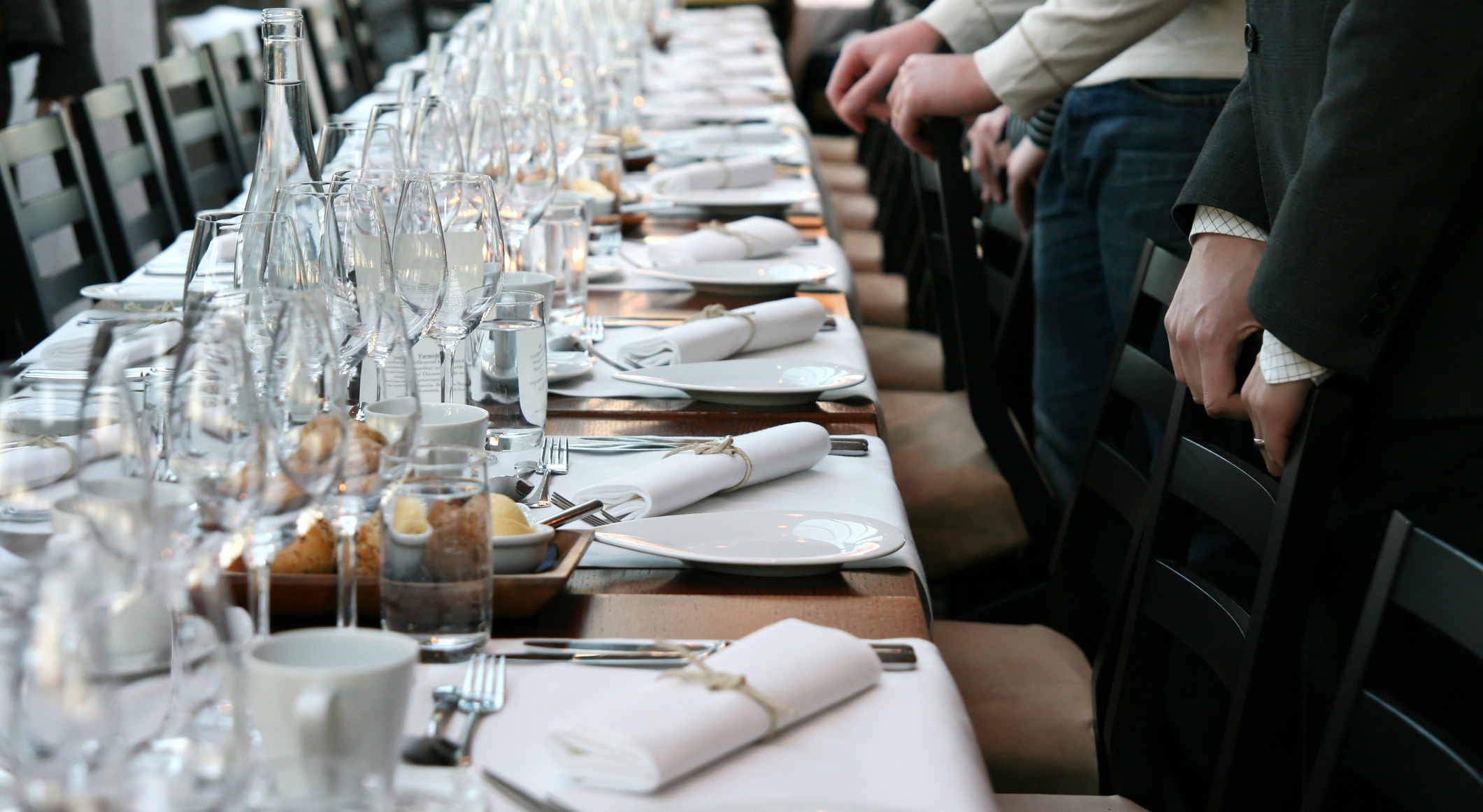Lectionary for Oct. 15, 2023
20th Sunday after Pentecost
Isaiah 25:1-9; Psalm 23;
Philippians 4:1-9; Matthew 22:1-14
Feasting, or having celebratory meals with friends and family, is a universal human act. I’ve celebrated Passover in Israel, Eid al-Adha in Morocco, Resurrection Day/Pascua in Spain and Thanksgiving in the United States—each major holiday is commemorated by food that is meant to tell us something from history that we are to literally take into our bodies. Who doesn’t love a feast? In this week’s readings, we encounter feasts to which many/all are invited but only a few choose to join.
Isaiah 25 is in the middle of a section called the mini apocalypse. This part of Scripture pulls back the veil to show what God has been working out in the unseen realms. Like all apocalyptic literature, this section is supposed to comfort a downtrodden people in a tumultuous time. Thus, God is portrayed as a stronghold for the helpless and the poor (4). God sets a lavish feast for all on the holy mountain, full of fat portions of meat along with wine that receives some sweetness back from sugars as the yeast breaks down. Essentially, God serves Wagyu and Lambrusco. And God insists that the eyes of all see the offered feast (7).
Sadly, some nations in this vision choose to resist the invitation. Moab perseveres in hostility to God’s chosen people and is seated in the dung pile rather than at the table (10-12). While God sets a table for all people, some refuse the feast.
The psalmist describes a similar situation. After the introductory pastoral metaphor of verses 1-4, the language of Psalm 23 shifts to describing an anointed guest at God’s table. (Please don’t put any stock in those pernicious memes describing shepherds “anointing” sheep’s heads with oil. That is not in view here, unless the sheep also eat at tables and have their own cups.) The psalmist imagines that God has set a table in the presence of enemies. Some will sit down to this feast while others will look on, presumably in anger. Again, God is delighted to prepare a meal, but some humans come to the table as enemies, not guests.
While God sets a table for all people, some refuse the feast.
Lastly, we have Jesus’ parables. I think the plural on parables in Matthew 22:1 is important, because Jesus tells a two-part story that is frequently conflated into one.
The first section is about the unwilling guests (paralleling Luke 14:16-24). The kingdom of heaven is like a king who holds a wedding feast for his son. The king sends servants to those who had previously been invited to let them know it is time to attend because the food is ready. But the guests, who already knew the day of the feast just not the hour, would not come. For guests to be unwilling to enter a party that is being thrown for them is the height of disrespect! But some of the awful guests are even worse than the others—they mistreat and even kill the servants whose only fault had been letting them know that the feast is ready. In the king’s anger, he sends his armies to destroy the towns of the people who had gone to great lengths, including killing and mistreating the servants, to ruin his son’s wedding. Again, Jesus tells a story of God setting a feast while some go to great lengths to exempt themselves from the festivities.
The key to understanding why people keep refusing to participate in God’s gracious meal is in the second parable that Jesus tells of the man in the wrong clothes. As above, wedding guests are sent an invitation ahead of time to allow them to travel and be present on the anticipated day. However, according to ancient tradition, guests aren’t welcomed into a hall or residence until the food is close to being ready. Frequently one might see people sitting around, careful not to get their party clothes dirty as they wait to gain entrance. As they wait, those who had traveled from long distances or had just come from some labor have time to clean up and change into their party clothes.
At least one guest chooses not to honor the king or his son and retains his normal clothes, thereby refusing to see the feast as anything worth celebrating. The king’s anger makes sense in this context. Instead of dishonoring the king outside of his palace and refusing to enter, this guest brings his contempt into the son’s wedding feast. For this reason he is bound and cast out.
Jesus’ contemporary, Rabbi Yohanan ben Zakkai, told a similar story of a wedding guest refusing to put on celebratory garments when invited to dine with the Great King. The rabbi explained his parable by saying the garments he alluded to were repentance and acts of righteousness. Make no mistake, God’s grace is always first. God sets a table and prepares a heavenly banquet. We are invited to feast on the meal in which Jesus is host and nourishment. But we can choose to shame God and dishonor God’s Son by failing to clothe ourselves in repentance in Jesus (Colossians 3:12; Romans 13:14). Sadly, there are some for whom the gracious welcome into God’s feast is not worth wearing the garments of repentance. But, for you and me, it’s time to get dressed because the meal is served!









